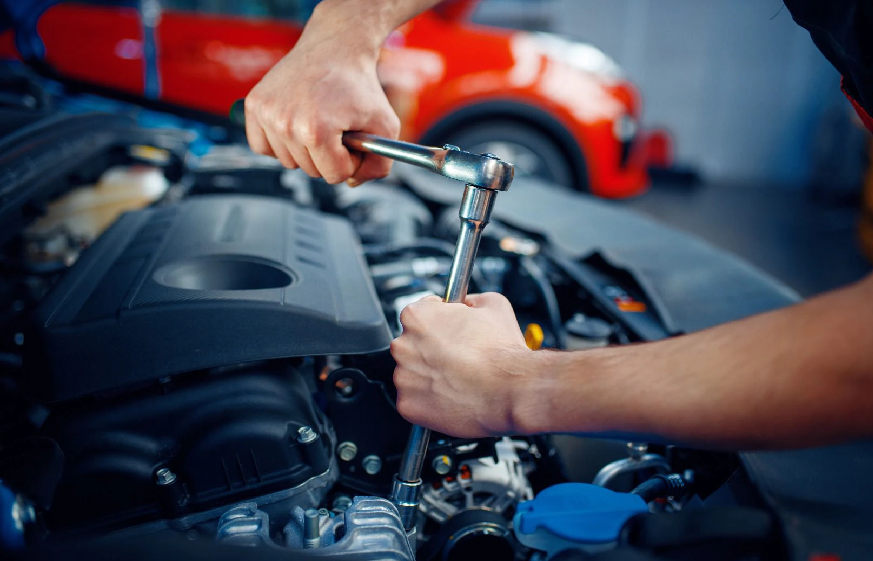Your vehicle has been damaged following an accident and you must contact a mechanic to carry out the repair work. How can you be sure to make the right choice and that the repair will be done well? Here are a few tips !
Mechanic repairing a car.
Getting your car repaired can be expensive. Good consumer information is essential to avoid inconvenience. Specific texts thus aim to guarantee consumer protection.
Information obligations
The professional has the obligation to display at the entrance to his establishment and in the places where his customers are received the hourly rates including tax and the prices including tax of fixed-price services:
for hourly labor rates, either in actual time spent or on the time scale established by the manufacturer (this scale which must be made available to interested motorists);
for all-inclusive packages, parts and labor; the customer can consult the detailed list of operations and parts included in the packages.
Advice
Before any repair, it is recommended to contact several mechanics in order to compare the prices, these being free. It is always recommended to have a repair order drawn up when the vehicle is dropped off and to request an estimate if the work is major.
The repair order
Before the repair, the professional is asked to complete a repair order which describes the nature of the work. The professional formalizes there the symptoms observed, a condition of the vehicle, an estimated amount of the work ordered if possible. He then comes back to you once the diagnosis has been made.
This document must be drawn up on letterhead signed by the client and the professional. It must indicate:
the estimated cost of the repairs to be carried out (or, when an exact price cannot be indicated, the method of calculation allowing the recipient to verify the latter);
vehicle down time.
This document will be useful in the event of a dispute. It will allow the customer to prove what has been requested. It can be compared to the invoice and possibly call the mechanic into question if the service provided does not correspond to that which was requested.
Warning
Additional work may however prove to be necessary once the vehicle has been dismantled. The trader is then required to inform the consumer.
The estimate
If the work requested is significant, it is preferable to establish an estimate.
Indeed, the estimate firmly commits the professional in a very precise way as to the scope of the work, its cost, the expected deadlines.
When signed, it is also worth a repair order. It must include:
Most often free, the estimate is established regularly by auto centers and at the request of the customer, in independent garages.
The estimate, once accepted by the customer, exempts the professional from including in his note all the operations already detailed.
After the repair, the professional must give the customer a note including tax for any sum greater than €25. This note is drawn up in duplicate, the original being given to the consumer.
The note includes the following information:
It should be checked using the repair order that repairs or products not requested are not invoiced. The customer is entitled to refuse to pay them.
The obligations of the garage
The professional is subject to an obligation of result, he is required to restore the vehicle entrusted to him to working order. He has the obligation to return a car on which all the interventions related to safety have been made.
In the event of a dispute over the quality of the work carried out or the amount of the invoice, the customer must pay to recover his car. He must make the payment with reservations on the invoice and its duplicate.
The professional must restore the vehicle to working order at his own expense, but he must also compensate the customer for the expenses incurred (rental of another vehicle, expert’s fees) by any defective repair.
If the vehicle was stolen or damaged while it was in the garage, the professional is responsible and must compensate the customer for the damage suffered.
Used parts that are removed from the vehicle remain the property of the consumer unless he decides to abandon them. He can ask to retrieve them for examination, in order to avoid possible abuse or if he has any doubts about the honesty of the mechanic
However, if it is a free repair during the warranty period of the vehicle or a standard exchange, the mechanic keeps the changed parts.
The mechanic is responsible for defects in the parts used. If he is part of a distribution network, he must use the parts supplied by the manufacturer, with the responsibility for him to turn against the manufacturer if the parts are defective.
If the repair is delayed, the customer may claim damages from the garage for the damage suffered (rental of a car, public transport costs).

